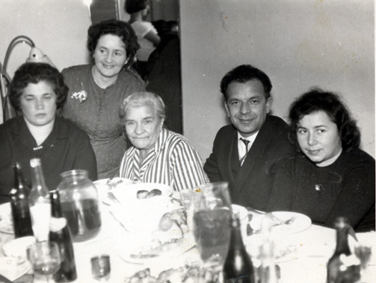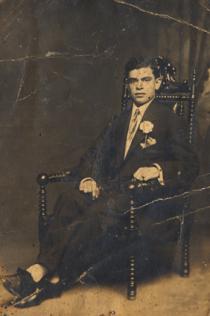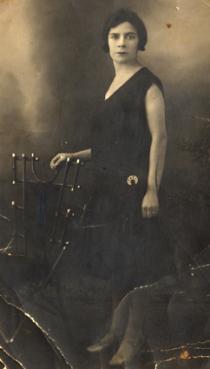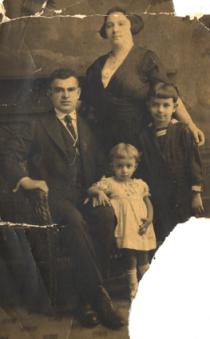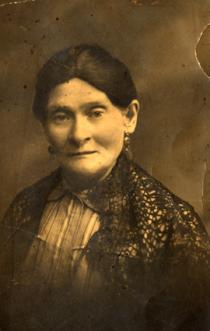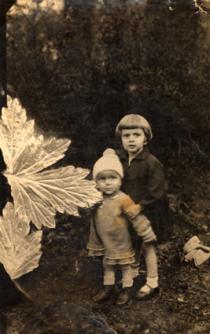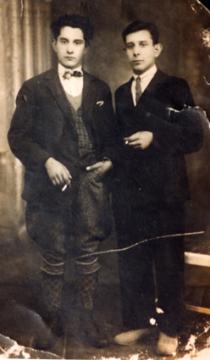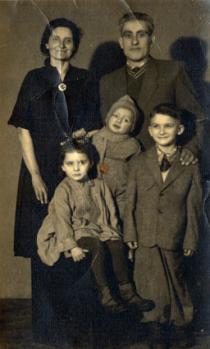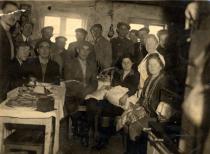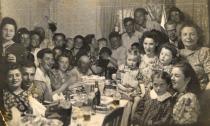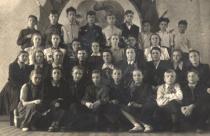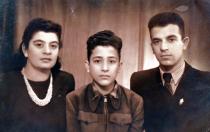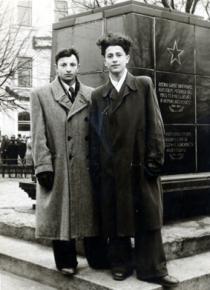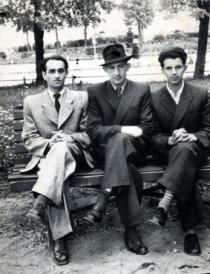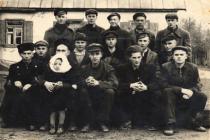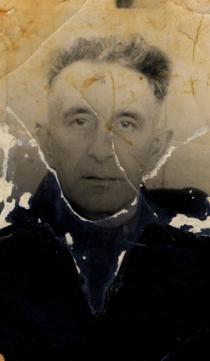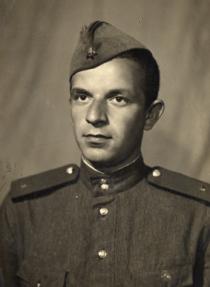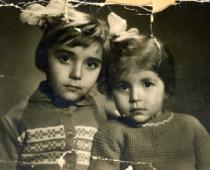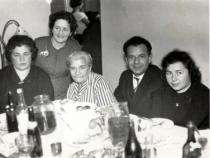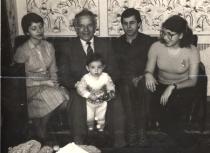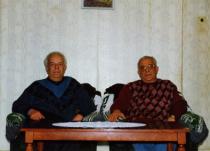I am the second to the right, to the right from me are my wife Frida Steinene, and our friends. This is family party. The picture was made in Siauliai in early 1970s.
In 1957 was a cooperative trade in Siauliai and I got the offer from there. Practically I and a Jew from Vilnius founded that organization. At first, I was HR manager with a skimpy salary of 640 rubles, but still it was a big help for the family. Then I was transferred to the position of a commodity researcher. It was an interesting job. I traveled on business throughout Lithuanian, entered into deals, had meetings. In 1957 I became the candidate for the communist party, and joined it in a year. In a while the director of our organization was fired for abuse and I was named acting director for the period of liquidation. I showed such a good performance that the company was not closed down, but reorganized. I became the director of this enterprise. The only condition was that I should get education. No matter whether I wanted it or not I had to enter Vilnius college. The person in charge of extramural studies came over in Siauliai to talk me into studying there. It was she who helped me enter and finish the college. After that I entered extramural department of Moscow economical institute and graduated from economics department. Before graduation from the college in 1964 I was elected chairman of Siauliai regional consumers' council. I had worked there for 30 years until retirement. In 1996 I retired. I should say that I met very good people at work. We got along very well and I felt no anti-Semitism. I think with my excellent organizational skills, I would take a higher position, if I were not a Jew. I was not promoted to any other positions within 30 years, and I did not get any offers for a higher position.
In 1959 I met my future wife Frida Beitler. We were classmates. As it often happens, I did not pay attention to her at school. She entered Vilnius university and we had not seen each other for several years. Once we bumped into each other in town and broached the conversation. By that time I knew her father very well. He worked as a chairman of the cooperative society in Zagare, where Frida was born. She worked at school as a teacher of Russian language and literature. We started seeing each other and registered our marriage on the eve of year of 1960. The had modest wedding celebration, a dinner with kin and friends. We moved into a two-room apartment and I started looking into improvement of working conditions. I got a four-room apartment in another house built for the employees of consumers' council in 1980s. We are still living there.
My life was not bad. My wife and I had lived in love and understanding for many years. In 1960 our elder daughter was born and younger Lina was born in 1963. We lived comfortably. I had access to the goods which were in deficit. During the soviet regime it was very problematic to buy what you need. My daughters were always well dressed. We bought things for them in stock markets. I should say that neither Frida nor I abused my position and we got only necessary things. Frida taught Russian language and literature and school, so we had enough money. In 1980 I got a car,which I am still driving. We also got a land plot and built a small country house there. We have a kitchen garden there where we plant vegetables and flowers. We had a good living in soviet time. Every year I got trip vouchers and Frida and I went to the resorts in Crimea an Caucasus. Daughters took a rest in children's camps in Palanga. At times the whole family went there on vacation. We also went to Moscow, Leningrad, where we attended theatres, museums and other places of culture.
